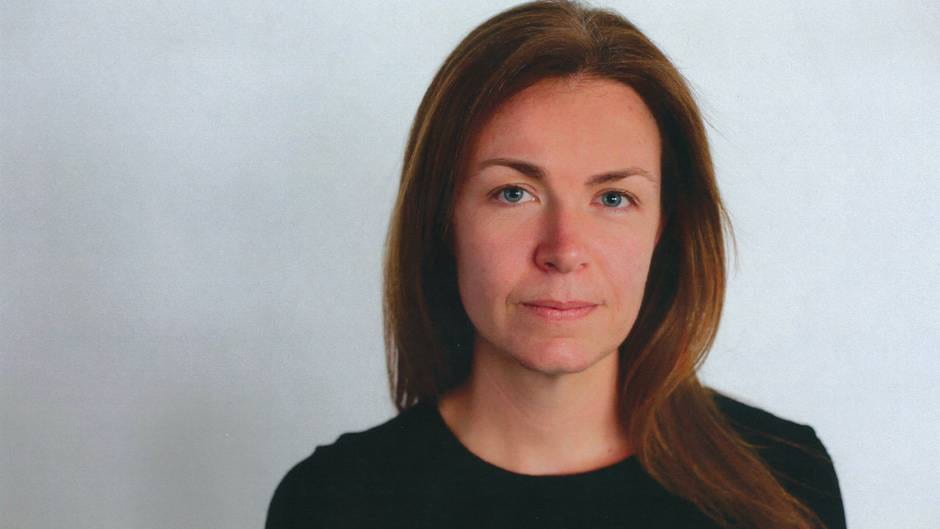Ella Watson-Stryker
Ella Watson-Stryker MIA is a Humanitarian Affairs Officer for Médecins Sans Frontières (Doctors Without Borders) and worked on the front lines of the 2014 Ebola epidemic in West Africa and most recently has just returned from working on the embattled front of the 2019 Ebola outbreak in Africa.
Excerpted from Time Magazine, January 19, 2015: Ella Watson-Stryker’s former Rutgers professors remember her as being smart, dedicated and interested in discussing issues. Watson-Stryker will now be remembered by the world for helping to combat the Ebola epidemic.
Watson-Stryker, a member of the Rutgers–New Brunswick Class of 2002, was recently featured as one of seven Ebola fighters who were collectively honored in December as Time magazine’s 2014 Person of the Year.
In an essay explaining the choice for 2014’s Person of the Year, Nancy Gibbs, managing editor of Time, said the Ebola fighters’ humanitarian work in the West African nations of Guinea, Sierra Leone and Liberia was necessitated.
During a time when the global health system was “nowhere close to strong enough” to approach the disease, Gibbs wrote in the essay that Watson-Stryker and her fellow Ebola fighters were selected for the honor after answering a call to action.
“The rest of the world can sleep at night because a group of men and women are willing to stand and fight,” she said in the essay. “For tireless acts of courage and mercy … for sacrificing and saving, the Ebola fighters are Time’s 2014 Person of the Year.”
A New York City resident and health promoter at Doctors Without Borders/Médecins Sans Frontières, Watson-Stryker said in an interview with Time that her work is chiefly concerned with informing others about ways to protect themselves from Ebola.
“My job is primarily focused on making sure that people have the information they need about Ebola to protect themselves, their families and their community,” she said in the interview. “But it’s hard because people are afraid. Sometimes they think even just talking about it can bring the virus to them.”
Richard Schroeder, chair of the Department of Geography at Rutgers and Watson-Stryker’s former professor, said he is proud Watson-Stryker found a means of applying her geographical education to the fight against the Ebola epidemic, which has killed more than 8,000 people in Guinea, Sierra Leone and Liberia in 2014.
Having received her undergraduate education at Rutgers, Watson-Stryker graduated with two bachelor’s degrees, one in geography and the other in religion, Schroeder said.
“I remember Ella as being very smart, very committed [and] very interested in discussing issues,” he said. “It’s not surprising to see what she’s gone on to do with her life.”
Drawing parallels between epidemiology, a branch of medicine that addresses the control of diseases, and geography, Schroeder said properly understanding the political, economic and cultural environment of any region is necessary in humanitarian work.
He said Watson-Stryker’s study of geography allowed her to facilitate the promotion of global health from an integrated approach.
“What Ella is doing on the ground in West Africa is trying to understand how Ebola is moving and how to try to arrest that movement,” Schroeder said. “She’s having to understand cultural practices … local economies … the physical environment, and how it can foster the spread of disease.”
In her interview with Time, Watson-Stryker said it was “emotionally devastating” to see so many individuals succumb to the disease, meeting
people before they become sick and burying them not long after.
“Guinea broke my heart,” she said. “I was not prepared for the level of mortality. I wasn’t prepared to watch entire families die. I wasn’t prepared to watch entire villages die.”
James Johnson, a distinguished professor in the Department of Religion, said Watson-Stryker was clearly interested in the application of moral values and ethical precepts to international affairs, as well as the continent of Africa.
Johnson, who was her Henry Rutgers Scholars thesis advisor for the religion department, said Watson-Stryker’s newfound fame for combating Ebola showcases the application of a religious education to global affairs.
“This provides a striking example of what you can do with a [degree in religion],” he said. “It is a very good example of what you can take away from a major in this field — concerns that have broad bearing on a whole variety of national and international issues.”
Johnson cited Watson-Stryker as one example of why it is useful and important to understand the implications of religion as a source of social organization and development.
“I’m enormously proud of her,” he said. “I’m very happy that somebody that I worked with has gone on to do this kind of [work] and make this kind of impact.”
Although she was honored with six other Ebola fighters as 2014’s Time Person of the Year, Watson-Stryker said she does not know how much of her work actually helps combat the epidemic. In her Time interview, she said it is better to try than to feel helpless.
“In Liberia people say this is a man-made virus. And it’s not a man-made virus,” she said. “But the disaster that the virus has created is man-made. It’s something we have chosen as humanity to allow to happen.”

